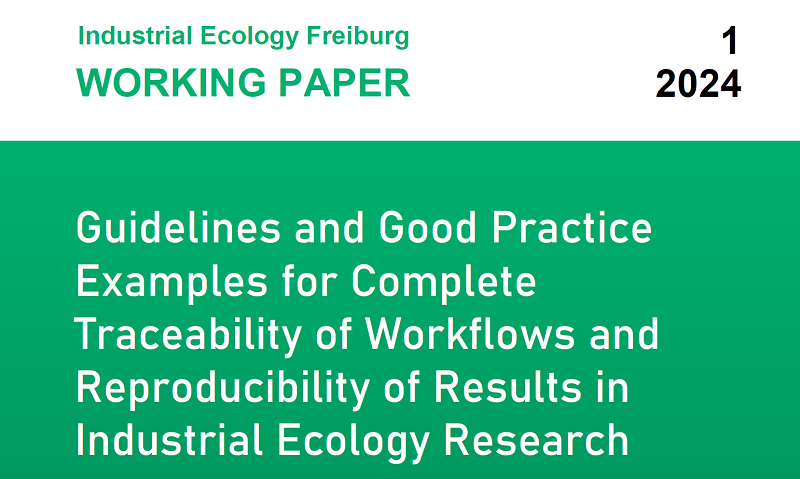Dear colleagues,
Data and data handling are at the core of industrial ecology (IE) and socio-metabolic research. With the growth and increasing complexity of IE research, partly driven by ‘big data’ and machine learning techniques, there is “a desire for better utilization of the accumulated data in more sophisticated analyses. This implies the need for greater transparency, accessibility, and reusability of IE data, paralleling the considerable momentum throughout the sciences” (Hertwich et al. 2018).
Many of our colleagues are working on developing the state of the art of our research towards better traceability of results and data, which increases the quality of the work, helps with the reuse of data and results, and facilitates updating, correction, teamwork, and handover of work to other colleagues.
In this new guideline document, we want to add detail to the general recommendations for data provenance and traceability given in the general guideline for MFA research, compile a number of working examples, and give an outlook on current trends and future development options. A draft version of this guideline and good practice report was put out for public review and feedback via the ISIE homepage in the summer of 2023: https://is4ie.org/announcements/1703 The draft report was discussed several times in the Section Board meetings of the socio-economic metabolism (SEM) section of the International Society for Industrial Ecology (ISIE). In the summer of 2024, the Section Board endorsed the publication of this document.
I invite you to have a look at the five step guideline and the eight examples of actual workflows compiled by our colleagues and contributing authors:
Guidelines and Good Practice Examples for Complete Traceability of Workflows and Reproducibility of Results in Industrial Ecology Research, by Stefan Pauliuk, Christoph Helbig, Richard C Lupton, Peter Paul Pichler, Simon Schulte, Konstantin Stadler, Peng Wang, and Dominik Wiedenhofer
https://doi.org/10.6094/UNIFR/255618
Fully traceable research streams, built with professional tools, will be fun and effective! They will strengthen our research community and help with the application of our findings in society.

